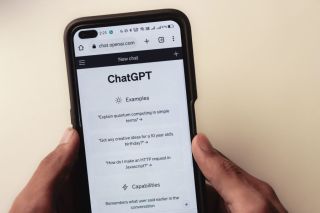Ethics and Morality
How to Cheat Without Being a Cheater
We use motivated reasoning to be dishonest and not see ourselves as immoral.
Updated July 19, 2023 Reviewed by Lybi Ma
Key points
- Our moral behavior is frequently selfish, strategic, and involves motivated reasoning.
- We seek material gain while maintaining good feelings about ourselves.
- To achieve this balance, we often convince ourselves that we haven’t really cheated when we have.

Have you heard about the dishonest Harvard honesty researcher? No, it’s not the start of a bad joke but a scandal that has rocked the academy.
When we learn of cases of dishonesty, we often respond with outrage and a sense of moral superiority. But the truth is that our own moral considerations are often complicated, and moral behavior is frequently selfish, strategic, and involves motivated reasoning, regardless of whether we fudge data or not.
The Cheating Self in Action
Don’t believe me? Consider the following:
If you were paid $0.50 for every problem you solved, would you report solving the correct amount if the experimenter couldn’t tell you were lying? Dan Ariely has found that the average person correctly solves four problems but reports solving six. Interestingly, when paid $10 per correct answer, people are less dishonest. It’s not that people are more afraid of being caught with a higher reward, for even when told the average solved was 8, people still report solving 6 on average.
What’s going on? It’s how we view ourselves that matters. People cheat but not enough that they consider themselves cheaters. This tendency to be dishonest but only to the point that we don’t violate self-standards helps explain behavior when individuals can remove a product from a stand and then leave payment. In these circumstances, the Dutch leave 20 percent less for candy bars than the list price. Americans leave 12 percent less than the list price for bagels and donuts. In one study, 18 percent percent of golfers said they would take a do-over on their first tee shot, and 8 percent admitted that they would move their ball four inches with their club to improve their shot. In all these cases, dishonesty is limited enough that people can fudge it and seem to enjoy the best of both worlds—good feelings about themselves and material gain.
The consideration we give to our behavior and the calculus about whether it impugns us as being dishonest motivates us in other surprising ways. Take adolescent virginity pledging, which research shows doesn’t lead to sexual abstinence any more than non-pledging but does increase the chances of having sex without contraception. One explanation suggested by psychologist Dale Miller in his work The Power of Identity Claims: How We Value and Defend the Self, is that virginity pledgers who have sex with contraception are undermining their identity claim more than those who have sex without it. The morality of their sexual behavior may be easier to justify if their cheating appears spontaneous rather than planned. At least they tried to keep their word, something harder to argue if one intentionally breaks the pledge and chooses to use condoms.

We create all sorts of rationalizations to justify dishonest actions. Consider the victimless crime of sharing passwords for streaming services, committed by approximately 73 million subscribers worldwide. This behavior is so normalized it hardly seems troublesome and harmful. Yet password sharing costs subscription services $2.3 billion in annual lost membership revenue, with Netflix alone losing $790 million. Before password sharing, several million people used the popular website Limewire to collect all the music they wanted, entirely free and without guilt. One credible analysis by the Institute for Policy Innovation concluded that global music piracy causes $12.5 billion in economic loss every year.
There is a lot of wiggle room here that allows us to be dishonest but make use of justifications so as not to feel dishonest. It’s not really stealing. No one is hurt. They can afford it and so on. This is why ChatGPT poses such a conundrum. At present, students receive mixed messages because instructors hold divergent views toward chatbots and their permissible use on assignments. Some teachers may require its use on papers, others may expressly forbid it, and still others may not explicitly mention AI at all. All this variation increases the fudge factor, students can convince themselves that using ChatGPT when not explicitly prohibited falls within the realm of being an honest student.

One recent study found that although students expressed positive attitudes toward AI, many feel anxious and lack clear guidance on how to use it. They weren’t clear about where the boundary for cheating rests, nor did they have any idea of their institution’s guidelines for AI use. This may help explain why currently, one study found that only 51 percent of students believe using AI for exams or papers is cheating. Only 41 percent of students believe using AI for assignments is “morally wrong.” If a May 2023 article in the Chronicle of Higher Education headline is to be believed (“I’m a student. You have no idea how much we’re using ChatGPT”), AI cheating is rampant.
Less consequentially, consider cheating at Wordle, the online puzzle game owned by The New York Times. One study found that 14 percent of Wordle players admitted to cheating. Online searches for Wordle answers increased dramatically from December 2021 to February 2022, mapping the rise in the game’s popularity. Why cheat at Wordle? Partly because people dupe themselves into believing their positive performance reflects their aptitude, and that praise from others is deserved. In one experiment, participants who had scored higher on a math quiz because they were given an opportunity to view the answer key greatly overestimated their future performance on a math test in which it was clear the answer key would not be available. Cheating causes us to view ourselves as more competent, so it feels less like cheating.
Do you want additional proof that we try to negotiate the degree of cheating we find bearable, and proceed when guilt is tolerable? People who anticipate feeling greater guilt over wrongdoing were less likely to lie for monetary gain or cheat during negotiations, and less likely to engage in counterproductive work behaviors such as arriving late for work without permission and stealing office supplies. Guilt-prone individuals were also more likely to share money with a partner in a laboratory game.
Remember the vilified dishonest honesty researcher? Most cheating in research is more subtle. Researchers have flexibility in making predictions or choosing which data analysis to conduct after the data have been collected and examined. They can go on “fishing expeditions” where all sorts of analyses are conducted after the fact in the hope that eventually, something will bite and appear statistically significant. We know that these judgments are influenced by funding and that taking money causes researchers to become pro-industry. Consider one study that examined 161 studies investigating the possible risks to human health of four chemicals. Of the studies funded by industry, only 14 percent found harmful effects on health. Of those funded independently, 60 percent found harmful effects.
Most researchers likely convince themselves that funding doesn’t make them cheat. But one experiment indicates that when people were told beforehand that they would be paid to recommend one of two stock options, they endorsed what was rewarded. When they didn’t know payment was forthcoming before they analyzed the choices, their recommendation was not influenced by the funding source. Self-deception is more difficult here, as it is obvious why someone would change their mind.
We’re all potential cheaters, therefore, endlessly in search of an argument or ruse to pretend otherwise.
References
Ariely D. (2012). The (honest) truth about dishonesty : how we lie to everyone--especially ourselves. New York: Harper.
Miller D. T. (2021). The power of identity claims : how we value and defend the self. New York: Routledge Taylor & Francis Group.




